So, it's time to dive into the first real chapter of my new Manifesting The Village series; if you haven't yet, please take a moment to go read the introduction. Or don't, it's totally up to you, and hopefully this post will be of value to you either way.
For today's journey, we are going to explore the idea of land ownership. First, briefly, I'll share my thoughts on the idea from a purely theoretical/philosophical/metaphysical angle. Next, for the majority of the post, I'll be presenting my research & findings on the best way(s) to protect land from the State, and to protect an intentional community from the many hazards of privately-owned land.
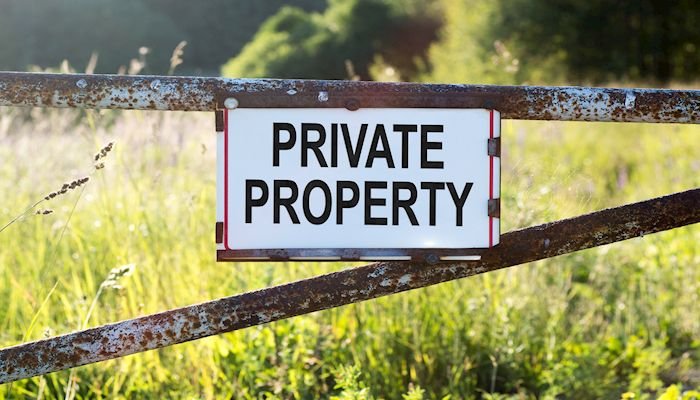
Image Source
Can Someone Own The Earth?
So, before I dive into the mechanics and Law around land ownership, and the strategies that I've found and plan to implement, I want to discuss the idea of owning the land.
To put it plainly: I do not believe in land ownership. In my understanding of the physical universe, every level of detail/focus is a fractal representation of the whole.
When we look at a human being, from our perspective, they seem like one unit, but upon zooming in, we find they are actually a mass of trillions upon trillions of cells. Each cell only appears singular until we zoom in again, ultimately making our way through molecules, atoms, sub-atomic particles, etc. Well, the same is true heading up the scale, to a watershed, a bioregion, a continent, the planet, the solar system, the galaxy, the universe...
Basically, just from the level of physical reality, we are simply a piece of the Earth, one element of its infinitely varied systems. Looking at that another way, I would argue that we are effectively all cells in one organism, which is the Earth.
The idea of one piece of something owning the whole is absurd. Besides that, any given piece of land has existed for eons before any given person walked on it, and the idea of owning something that existed before your species, and will exist long after, seems like the pinnacle of hubris to me.
As I mentioned earlier, I want to keep this portion of the article short, so here is a full post I wrote (almost exactly 2 years ago) looking at this idea much more fully: Does a blood cell own your body? Land ownership, and why I don't believe in it
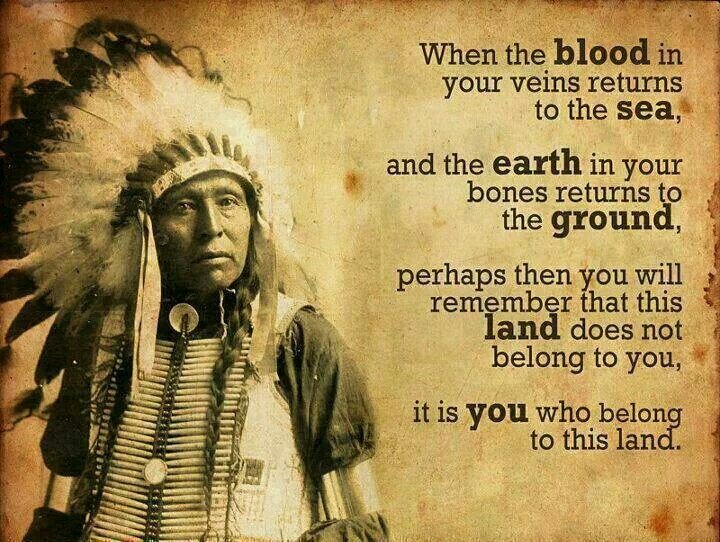
Image Source
So Where Does That Leave Me?
Obviously, the idea that land cannot be owned doesn't lend itself all that well to creating a permanent village in the modern world. If I had been around a few hundred/thousand years ago (depending on which part of the planet we're looking at), then simple migratory, living-off-the-land would have worked fine. Unfortunately, in the modern world basically every piece of land anywhere is claimed to be owned by a government, corporation, or the Catholic Church.
Since the only way to build on land and have it be (relatively) safe from interference, is to play the game to some extent, I've come up with what seems like the safest, most Lawful approach. My plan basically has two parts, in regards to the ownership of the land:
- Create a Land Trust, meaning that the land itself will be a legal entity, under international law. The agreements of the community, including how people join, can all be part of the trust documents themselves. This has a variety of benefits, most notably that the land becomes completely separate from any of the people on the land, and any legal/financial troubles that anyone has cannot result in the land being lost.
- Go through the process of getting a Land Patent, which is the original ownership document for a piece of land (deeds are a lease-in-perpetuity against the patent.) This land patent will in the name of the Land Trust, meaning that the land itself will literally be the lawful owner of the land.
Now, I'm guessing that at least one, if not both of these concepts are new to most readers, so let's dive into each of them individually.
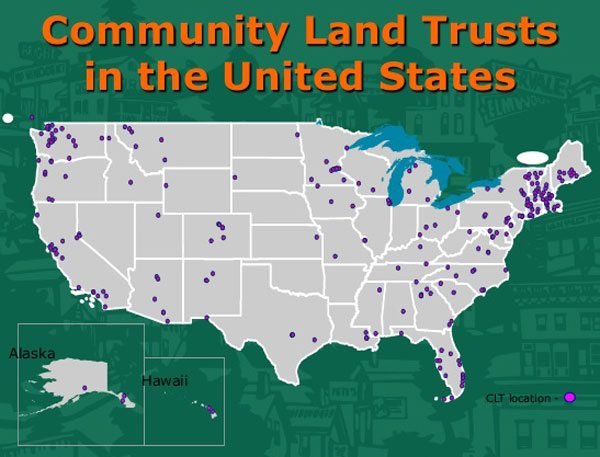
Image Source
Land Trust
My first introduction to the idea of a land trust came from my first visit to Valley View Hot Springs in Colorado. VV is owned by the Orient Land Trust, created in 2001 because "Its founders, owners of Valley View Hot Springs for thirty-five years, knew that the resources of the northern San Luis Valley and specifically the environs surrounding Valley View were simply too valuable to be owned by any person. They needed to be put into trust for everyone, for all time."
Since that first introduction, I've found that quite a few intentional communities are actually set up as land trusts. There seem to be two primary reasons for this:
- The land can't be taken from the "owner" via civil asset forfeiture, bankruptcy, etc.
- On the community level, it protects against a village turning into a new version of a feudal lord's land. Unfortunately, many intentional community projects have fallen apart because the person who "owned" the land decided to start violating others, making up new rules, or simply kicking out people they didn't like.
There are three primary types of Land Trusts:
- Illinois Land Trust, or title-holding trust, where there is still one owner, but they have the protection of a trust. (Read More)
- A Conservation Trust is a non-profit organization that takes ownership of a piece of land specifically for the purposes of conservation (which unfortunately has some very specifc and strange definitions thanks the the "Climate Change" hoax) (Read More)
- A Community Land Trust is similar to a conservation trust, but more focused on the balance of land & humans. (Read More) This is the model that I plan to pursue.
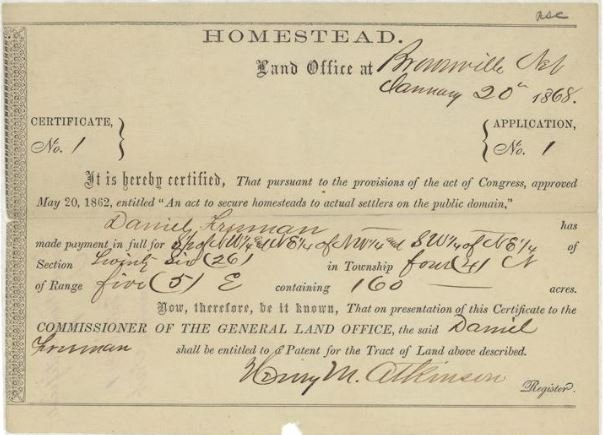
Image Source
Land Patent
A Land Patent is something a bit less well-known, and certainly less used by activists in the modern world, but still with quite a bit of value. Simply put, a Land Patent is the supreme, permanent title to a piece of land.
As definitions.net puts it:
A land patent is an exclusive land grant made by a sovereign entity over the land in question. To make such a grant “patent”, such a sovereign must document the land grant, securely sign and seal the document, and openly publish the same for all the public to see. An official land patent is the highest evidence of right, title, and interest to a specifically defined tract of land; usually granted by a central, federal, or state government to an individual or private company.
Most people, when they buy land (not when they have a mortgage, but when they actually buy it) receive a deed, but a deed is not an ownership document. A deed is effectively a lease-in-peretuity on that piece of land. As long as the "owner" makes their rent payments (property taxes) they get to live on/use the King's land. As soon as they stop making those rent payments, the land is taken away from them. This is a feudal system, just rebranded and made more complicated, to keep the serfs from realizing that they aren't legally allowed to own anything.
The main benefits of a Land Patent, according to upcounsel, are:
- Land patent holders need not honor liens on their property, including those imposed due to unpaid taxes.
- Land patent holders cannot have their land taken away from them by seizure or eviction.
- Land patents can be transferred through inheritance.
- Land patent holders can use their land as they see fit, i.e., mineral, drilling, etc.
Meanwhile, Courthouse Direct lays out a slightly different list of benefits:
- The land cannot undergo foreclosure.
- The land cannot be taxed.
- No third party claim can be brought against it.
- The government may not encumber the land through legislation.
- Ownership of land through a land patent also confers ownership of the water rights to any water or minerals originating on or under the property. Nobody can regulate or monitor the use of that water.
Now, all of the things on those lists sound great to me, and I'm more than happy to figure out on my own exactly which benefits will hold up, and which won't. Meanwhile, the only real "disadvantage" I can find is that "Removal of the land from the tax rolls cancels any obligation to emergency services paid for by taxes." Seems like a win-win to me.
The process to get a land patent doesn't seem to be overly difficult, though it is generally considered time-consuming, and may be expensive. Simply put, there are just a few steps:
- Get a certified copy of the Deed for the land
- Using BLM records, find the original land patent for the property, and get three certified copies
- Get a certified copy of each title transfer between that original patent & you (the most time-consuming & potentially expensive part)
- Combine certified documents with Certificate of Acceptance and Declaration of Land Patent
- Leave it at the courthouse/city hall/public building bulletin board for 61 days
- File with the county recorder
Here are a few resources that go more in-depth on the process, and provide example documents, and may even provide help (I'm not vouching for any of them):

Image Source
Wrapping Up
So, now we've gone through the whole mental journey from my desire to create a village, through my disbelief in the possibility of "owning" land, on to the two-sided solution I've found to have the land gain the protections of "ownership" without the dangers of "ownership."
This was probably an overly simplistic take on both Land Patents & Land Trusts, since both have thousands of pages online going into their finer details, and I'll be adding things that feel important as I learn more.
Also, with this article, and the whole of the Manifesting The Village series, I am hoping that you all will contribute your ideas, questions, and concerns, helping to co-create this village.





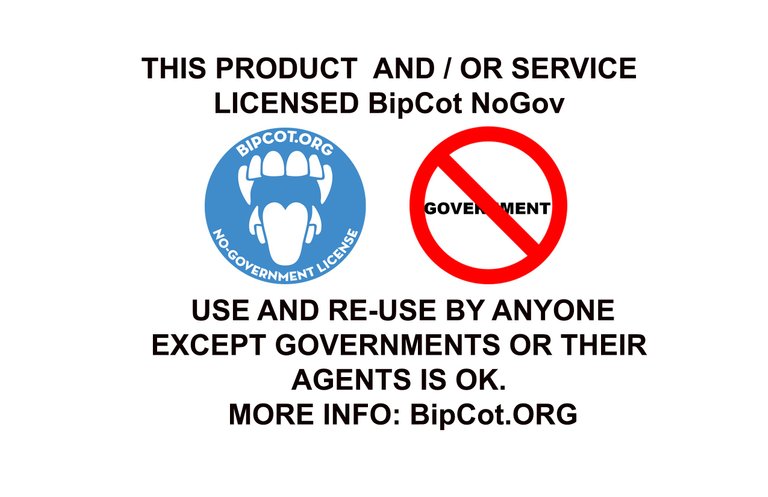
The earth abides (should be the name of a book) and will be here long after we're gone. I have a similar view of owning land... seems hmm arrogant some how.
So much to research but you are definitely up to the task. Sounds like some synergy with @eco-alex. Best wishes.
Awesome post, Brother!
I do patent research since 20 years and never
heard of a land patent...
So we need to "keep babylon out" from the start, because this:
"This is a feudal system, just rebranded and made more complicated, to keep the serfs from realizing that they aren't legally allowed to own anything."....is crazy!
Let's do it the smart way ;)
I will look out for your "Manifesting the Village"...Love it! ;)
Interesting, but Central Authority are notorious for changing or breaking their own rules to get what they want.
I'd be sceptical of any claim that 'Eminent domain' or 'tax free land' will be honored. Well, it will be for a little while anyway.
But... is the fee and costs worth it if it still might be taken from you, a group or even no one in particular?
Very true, but completely unavoidable as a potentiality if we're talking about a piece of land on current-timeline Earth. Organized Crime Syndicates (governments) literally claim to own ALL of it. They are far less likely to break/change the rules that actively protect their own investments & "wealth."
But it has been so far, for hundreds of years. It's not nearly as good an option of having a private non-state island built or something, but it is by far the best option to "own land." If one is going to start a land-based project of any kind, why not use the very best, most Lawful options available.
There's a reason billionaires do everything through trusts and other Lawful means that most aren't familiar with.
It's better than nothing. Though, Billionaires have the money to defend themselves against governments in courts.
Hell, the average citizen can't even beat an oil company these days and eminent domain is not even supposed to pertain to them.
Thanks, Kenny. I had never heard of land patents before. Very valuable post! I look forward to more details of your project.
Awesome post, man. But do you know if land trust and land grants equally apply in countries where civil law (a.k.a. Roman law) is practiced, such as Europe or Latin America? Just asking because here in Mexico where I'm thinking about landing nobody ever talks about trusts, let alone patents. But that alone doesn't mean they don't exist.
Land Trusts definitely exist all over the planet. Part of the benefit of trusts (and why the rich use them for everything) is because they supersede national "laws."
The land patent side of things, you'd have to look country by country, but they did come over from England & other European countries to the Americas. I've only been looking at the specifically USA process to get one, but they definitely exist in at least some other countries.
EDIT: Ya, there's all kinds of stuff about Mexican Land Trusts
Curated for #informationwar (by @truthforce)
Delegate to the @informationwar! project and get rewarded
I really like what you have to say here. I'm a bit more of a propertarian myself, but on some level I agree with your statement about land ownership. As a result of my skepticism about the absoluteness of land ownership in perpetuity, I've come to the conclusion that the concept of land ownership, along with a lot of the civil structure of our modern society, is really just a set of rules designed in such a way that if they are honored, people can coexist peacefully. Their purpose is strictly as an agreement between people, not necessarily between nature and men. If there weren't other people around, why would one need to possess anything at all? It would all be there for the taking in unlimited quantity.
Unlike Rothbard however, I believe that land can in fact be abandoned and that when it is it should be free to be homesteaded by the next enterprising people who come along and put it to good use. Just like you can't leave an old junky car lying on the side of the road and expect to come back and claim it years later after someone claims and restores it, you can't just leave a piece of land unused for decades and expect to have a claim against squatters who come along and start mixing their labor with it in your absence.
My favorite part about what you're trying to do here though is that you've found a way to fulfill your dream peacefully. It goes against pretty much everything our current society embodies, and yet you've found a way to do it that doesn't use force. There's something beautiful about that. Thanks for sharing.
Wow, this is fascinating! Valuable information, I hope someday to make use of this and be the steward of a piece of land!